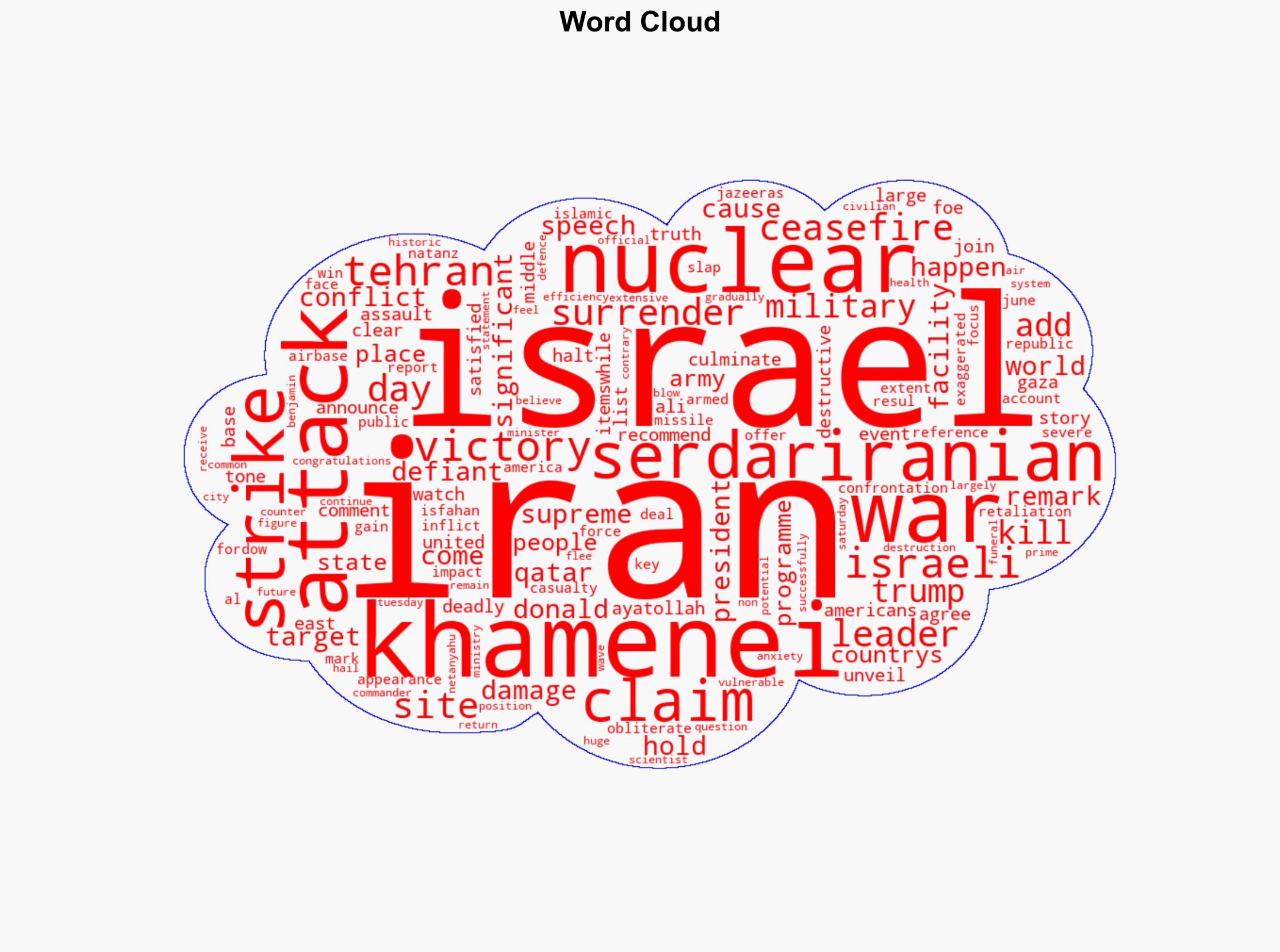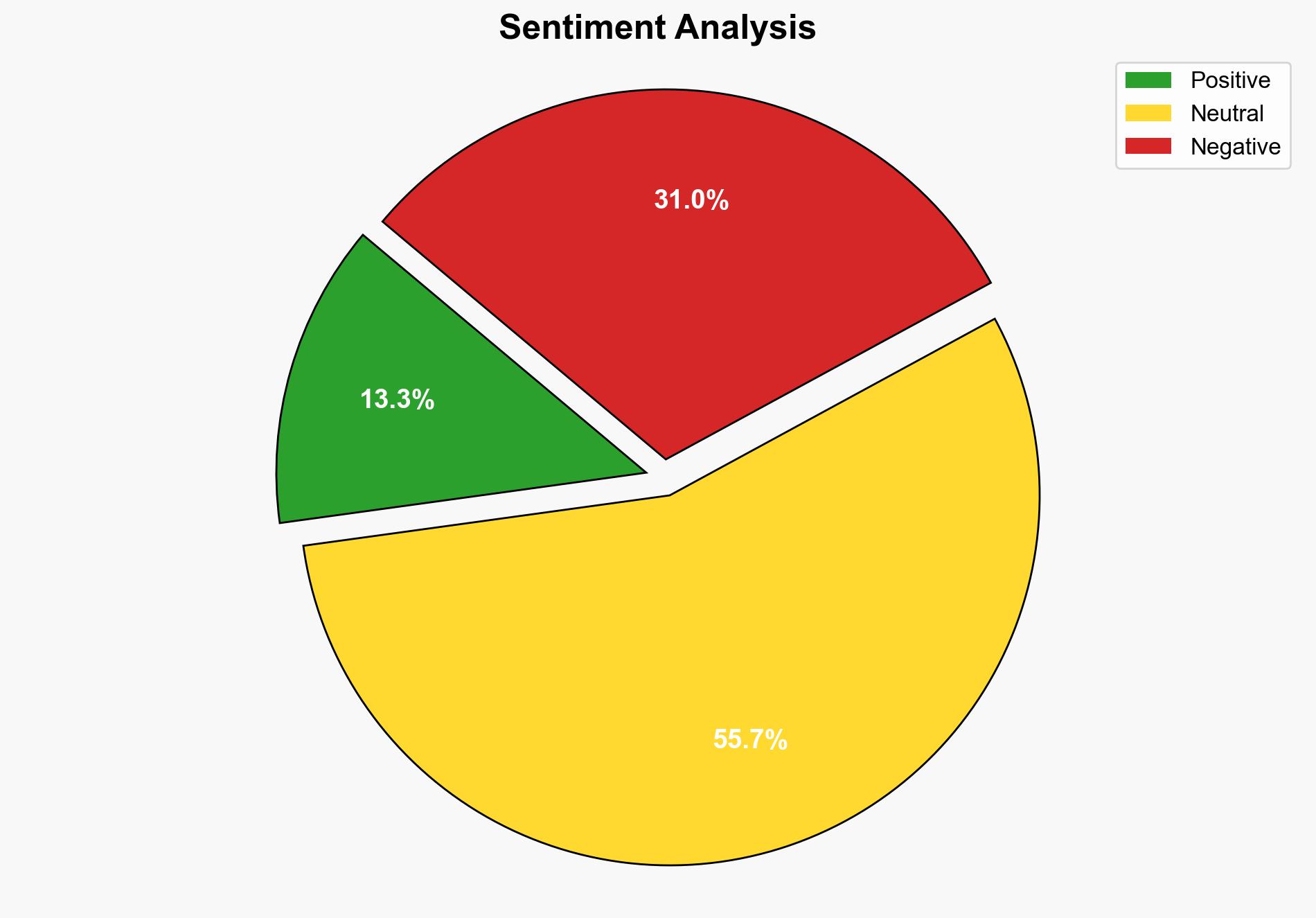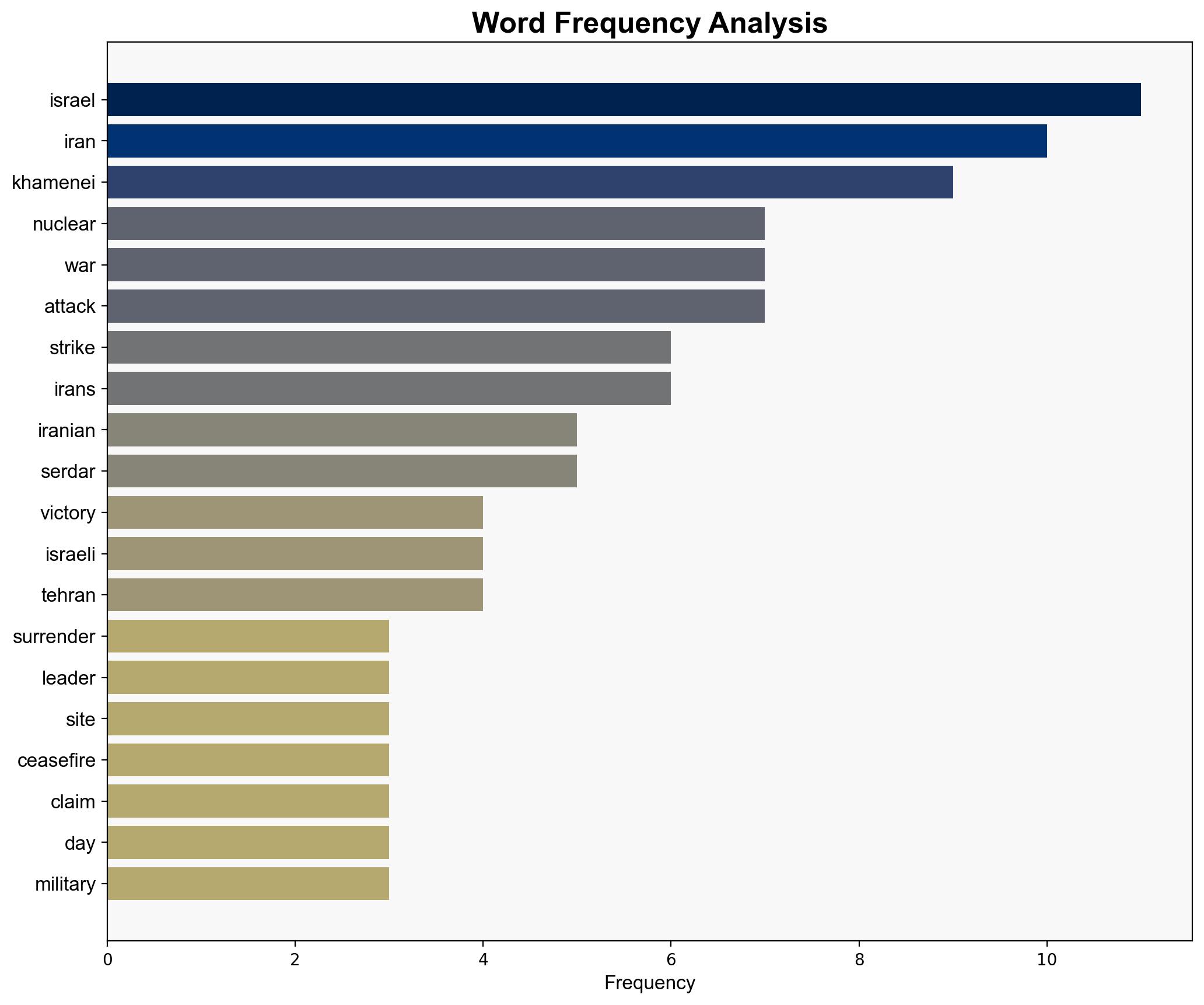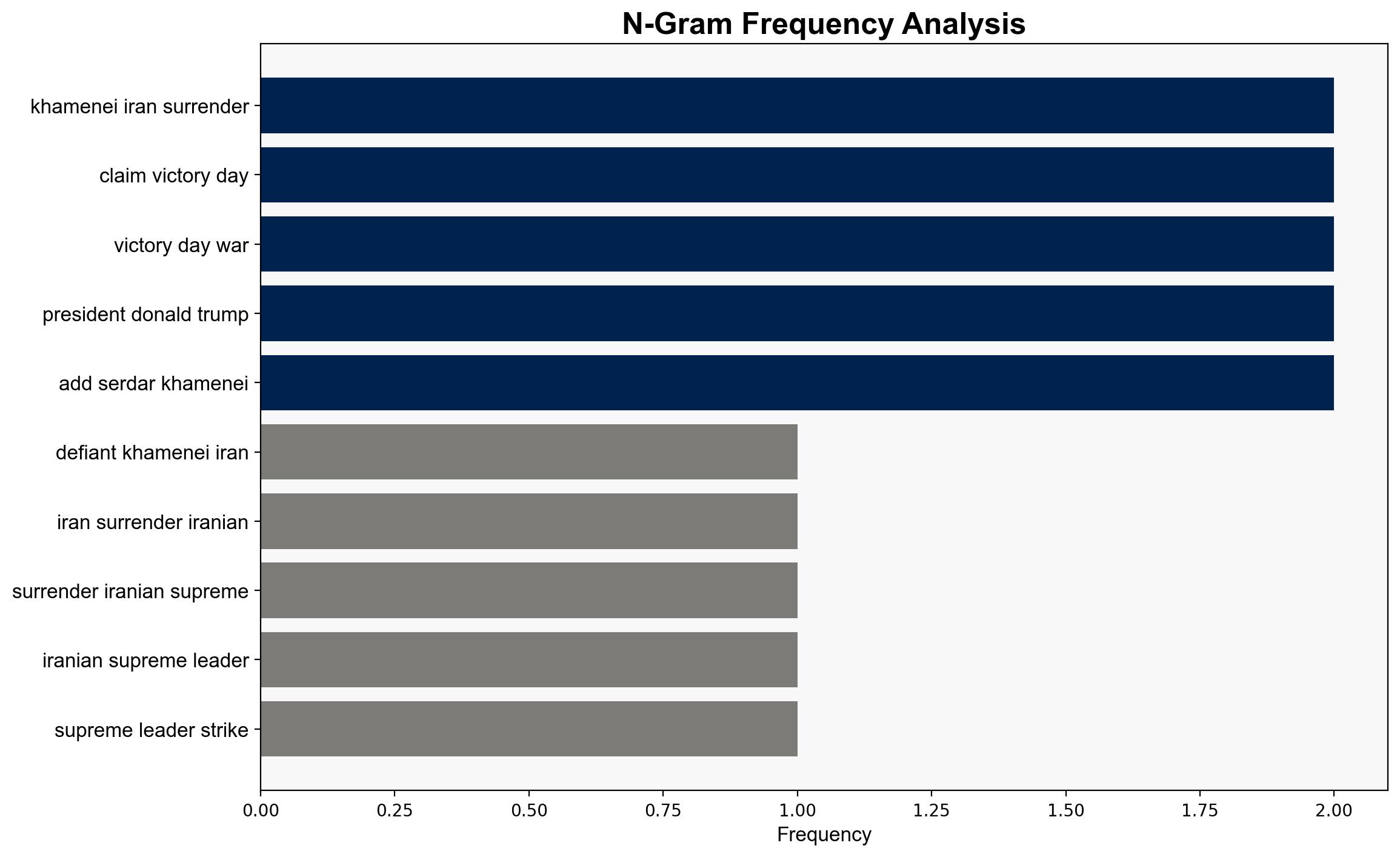Defiant Khamenei says Iran will never surrender to the US – Al Jazeera English
Published on: 2025-06-26
Intelligence Report: Defiant Khamenei says Iran will never surrender to the US – Al Jazeera English
1. BLUF (Bottom Line Up Front)
Iran’s Supreme Leader, Ayatollah Ali Khamenei, has publicly declared that Iran will not capitulate to the United States, despite recent military tensions with Israel. This statement comes amid reports of significant damage to Iranian nuclear sites and ongoing regional conflict. The rhetoric suggests a continued adversarial stance, potentially escalating regional instability.
2. Detailed Analysis
The following structured analytic techniques have been applied to ensure methodological consistency:
Causal Layered Analysis (CLA)
Surface Events: Recent military engagements between Iran and Israel, including strikes on nuclear facilities and retaliatory actions.
Systemic Structures: Ongoing geopolitical tensions in the Middle East, with Iran’s nuclear ambitions and US-Israel alliances at the forefront.
Worldviews: Iran’s perception of Western aggression and its resolve to maintain sovereignty and nuclear capabilities.
Myths: The narrative of resistance against Western imperialism and the portrayal of Iran as a regional power.
Cross-Impact Simulation
The conflict between Iran and Israel could lead to increased military engagements, impacting neighboring countries and global oil markets. Economic sanctions and diplomatic pressures may further strain Iran’s economy, affecting regional stability.
Scenario Generation
Scenario 1: Escalation of military conflict leading to broader regional war.
Scenario 2: Diplomatic intervention resulting in a temporary ceasefire and negotiations.
Scenario 3: Continued low-intensity conflict with periodic escalations.
3. Implications and Strategic Risks
The ongoing conflict poses risks of broader regional instability, potential disruption of global oil supplies, and increased cyber threats. The resilience of Iran’s air defense and nuclear infrastructure remains a critical vulnerability.
4. Recommendations and Outlook
- Enhance diplomatic efforts to mediate between Iran and Israel to prevent further escalation.
- Strengthen cybersecurity measures to protect critical infrastructure from potential retaliatory attacks.
- Monitor regional alliances and shifts in military capabilities to anticipate future conflicts.
- Best Case: Successful diplomatic resolution leading to a de-escalation of tensions.
Worst Case: Full-scale regional conflict with significant global economic impacts.
Most Likely: Continued sporadic conflicts with ongoing diplomatic challenges.
5. Key Individuals and Entities
Ayatollah Ali Khamenei, Donald Trump, Benjamin Netanyahu, Resul Serdar
6. Thematic Tags
national security threats, cybersecurity, counter-terrorism, regional focus





